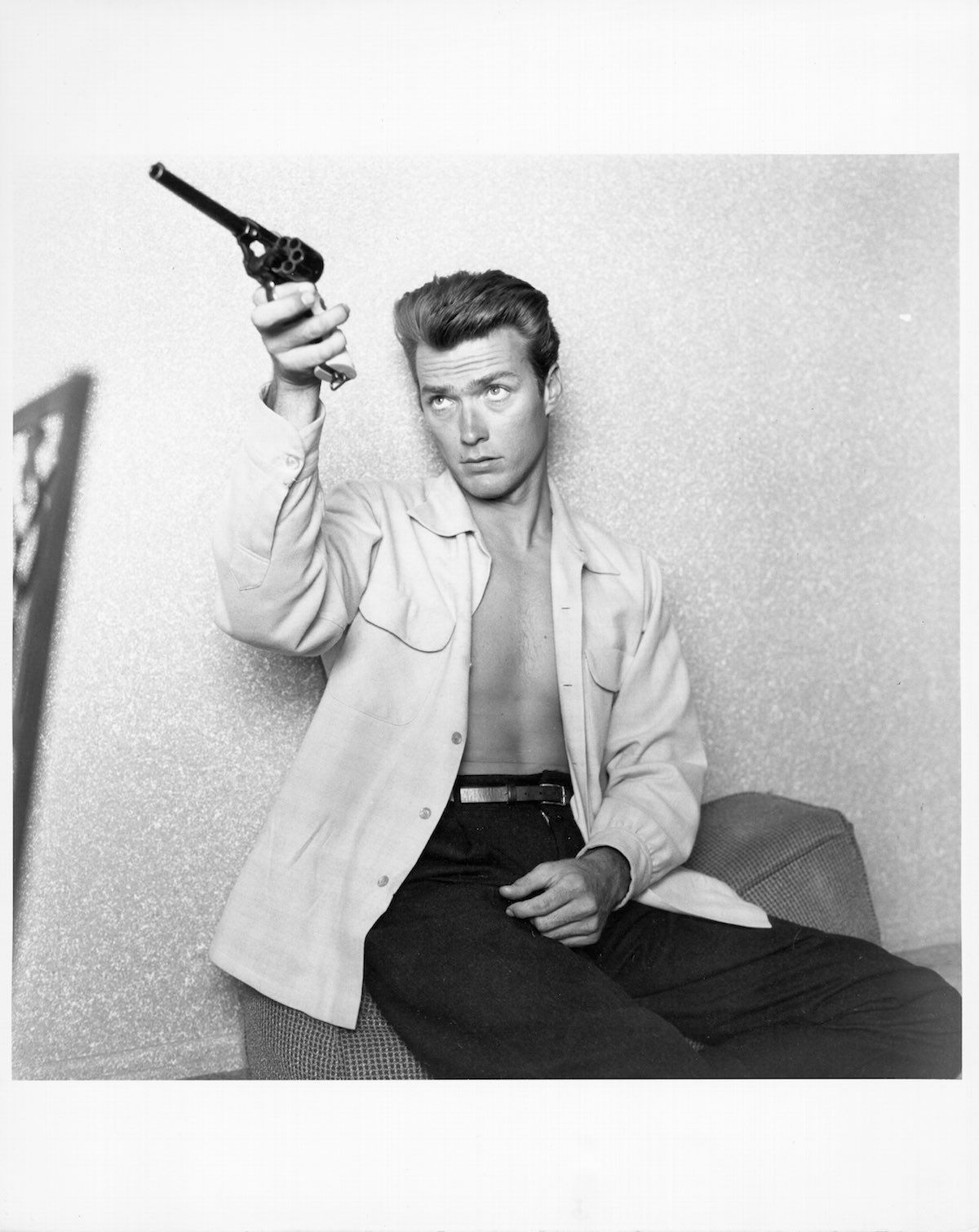Young Clint Eastwood: The Rise Of A Hollywood Icon
Young Clint Eastwood is a name that resonates with film enthusiasts and casual viewers alike. Known for his rugged charm and remarkable talent, Eastwood has become synonymous with classic American cinema. This article delves into the early life, career beginnings, and the formative years of Clint Eastwood, exploring how he evolved into the legendary actor and director we know today. From his humble beginnings to his breakthrough roles, we will uncover the essence of Young Clint Eastwood.
In the sections that follow, we will explore various aspects of Clint Eastwood's formative years, including his background, notable roles, and the influence of his early experiences on his later work. By the end of this article, you will have a comprehensive understanding of how Young Clint Eastwood shaped the film landscape and left a lasting legacy in Hollywood.
Table of Contents
- Biography of Clint Eastwood
- Early Life and Background
- Career Beginnings
- Breakthrough Roles in Film
- Directorial Debut and Early Projects
- Personal Life and Influences
- Legacy of Clint Eastwood
- Conclusion
Biography of Clint Eastwood
| Full Name | Clinton Eastwood Jr. |
|---|---|
| Date of Birth | May 31, 1930 |
| Place of Birth | San Francisco, California, USA |
| Occupation | Actor, Director, Producer |
| Years Active | 1955 - Present |
| Awards | Academy Awards, Golden Globe Awards, BAFTA Awards |
Early Life and Background
Clint Eastwood was born in San Francisco, California, to Ruth and Clinton Eastwood Sr. His upbringing was marked by a nomadic lifestyle, as his family moved frequently due to his father's job in the manufacturing industry. Despite these challenges, Eastwood developed a love for music and sports during his childhood, eventually pursuing a career in acting.
Education and Early Interests
Eastwood attended Oakland Technical High School, where he began to explore his passion for performing arts. He pursued music initially, playing the piano and singing in various school productions. However, he soon discovered his interest in acting, which would shape his future career. After graduating high school, Eastwood enrolled at Los Angeles City College but left before completing his degree to pursue acting full-time.
Career Beginnings
Clint Eastwood's early career began in the 1950s, where he took on various roles in television and film. His first significant break came with the TV series "Rawhide," where he played the role of Rowdy Yates. This role helped establish him as a rugged leading man and opened doors to more significant opportunities in Hollywood.
Transitioning to Film
Following his success on television, Eastwood transitioned to film with roles in Westerns, notably in movies like "A Fistful of Dollars" and "For a Few Dollars More." These films solidified his status as a leading figure in the Western genre, showcasing his charisma and acting prowess.
Breakthrough Roles in Film
The 1960s marked a pivotal decade for Clint Eastwood, as he solidified his reputation with iconic roles. His portrayal of the "Man with No Name" in Sergio Leone's Spaghetti Western trilogy catapulted him to international fame. Eastwood's unique blend of stoicism and intensity captivated audiences, making him a household name.
Impact of the Western Genre
Eastwood's work in the Western genre not only defined his early career but also shaped the genre itself. His films often challenged traditional Western tropes, introducing complex characters and moral ambiguity. This innovation contributed to the resurgence of Westerns in American cinema and influenced future filmmakers.
Directorial Debut and Early Projects
In addition to acting, Clint Eastwood ventured into directing, making his directorial debut with "Play Misty for Me" in 1971. This psychological thriller showcased his talent behind the camera and marked the beginning of a successful dual career as an actor and director.
Exploring Different Genres
Throughout the 1970s and beyond, Eastwood explored various genres, including drama, crime, and war films. His versatility as a filmmaker allowed him to tackle complex themes, earning critical acclaim and numerous awards for his work.
Personal Life and Influences
Clint Eastwood's personal life has often been in the spotlight, with several high-profile relationships and marriages. Despite the challenges he faced in his personal life, Eastwood remained dedicated to his craft, drawing inspiration from his experiences.
Influences on His Work
Eastwood's early experiences and relationships played a significant role in shaping his artistic vision. His interactions with fellow actors, directors, and writers influenced his approach to storytelling and character development. This foundation laid the groundwork for his future successes in Hollywood.
Legacy of Clint Eastwood
Clint Eastwood's contributions to cinema extend beyond his roles as an actor and director. His influence on the film industry is profound, inspiring generations of filmmakers and actors. Eastwood's ability to evolve artistically has allowed him to remain relevant in an ever-changing industry.
Recognition and Awards
Throughout his career, Eastwood has received numerous accolades, including Academy Awards for Best Director and Best Picture. His commitment to storytelling and dedication to his craft have earned him a place among the most respected figures in Hollywood.
Conclusion
In conclusion, Young Clint Eastwood's journey from humble beginnings to Hollywood icon is a testament to his talent and perseverance. His impact on the film industry is immeasurable, shaping the landscape of American cinema. As we reflect on his early career, we invite you to share your thoughts and experiences related to Clint Eastwood in the comments below. Don't forget to explore more articles on our site to learn about other influential figures in the world of entertainment.
Thank you for reading this comprehensive exploration of Young Clint Eastwood. We hope you found this article informative and engaging. Stay tuned for more insights into the lives of cinema's greatest legends!
Article Recommendations
- Carrie Cummings Real Name Unveiling The Truth Behind The Persona
- Exploring The Life And Love Of Kim Hyeyoon Who Is Her Husband
- Exploring Lucywells Jerseyexpress Net The Ultimate Guide To Fashion And Style


